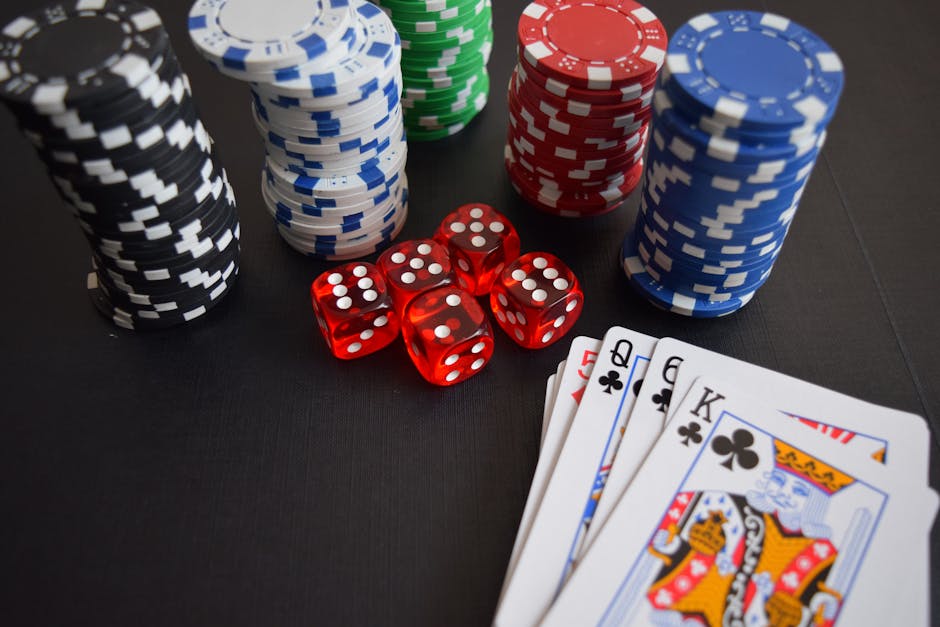Luck Isn’t a Strategy
Believing that luck alone will carry you to gambling success is one of the fastest ways to deplete your bankroll. While chance is an undeniable part of betting, mistaking random outcomes for predictable patterns can lead to reckless decision making.
Why “Feeling Lucky” Fails
Trusting your gut or betting based on intuition might feel satisfying in the moment, but it’s not a strategy. Relying on vague feelings rather than data and discipline makes every bet a gamble in the truest sense.
“Luck” is not a measurable or repeatable factor
Random wins don’t indicate future success
Emotional highs often override rational assessment
The Truth About Hot and Cold Streaks
It’s common to hear bettors talk about being “on a streak.” While it may seem like winning or losing comes in patterns, those streaks are typically just random clusters within a sequence of independent events.
Hot streaks often lead to overconfidence and riskier bets
Cold streaks increase chances of chasing losses
Streaks are examples of random variance not predictive trends
Real Odds vs. Gambler’s Fallacy
The gambler’s fallacy is the belief that past outcomes influence future results thinking a win is due after a series of losses, or assuming a loss must follow a winning streak.
Here’s the reality:
Every spin, hand, or roll is independent (unless player skill applies)
Odds don’t shift based on what happened previously
Understanding the true probability of each bet protects your bankroll
Bottom Line: Success in gambling comes from managing risk, understanding the odds, and recognizing that every bet is a new event not part of a cosmic pattern. Your chances don’t improve because you’re “due.”
“The Casino Wants Me to Win Sometimes”
Let’s clear something up: the casino doesn’t care if you win once in a while. In fact, it counts on it. That’s the house edge doing its job. Every game from blackjack to slots is built with a mathematical advantage tilted slightly (or dramatically) in the casino’s favor. That tiny edge might look harmless over one round, but stretch it across hours or days of play and it turns into a reliable profit stream for them, not you.
Small wins? Sure, they happen. Sometimes you’ll hit a bonus round or cash out ahead. But over time, those wins don’t stack in your favor. It’s like flipping a weighted coin. Heads might show up here and there, but tails is rigged to win most of the time. That’s how the system stays profitable no matter how many people hit the jackpot on a lucky Friday night.
Bonus offers? Not free money. They’re structured like bait often with steep playthrough requirements or restrictions on how and when you can actually withdraw anything. That ‘free’ $100 might require $1,000 in bets before it’s real. The house doesn’t offer generosity; it offers incentives that keep you spinning just a little longer.
Bottom line: the house edge isn’t just real it’s the core business model. And every promotion or small win is designed to keep you in the game long enough for it to start working.
Chasing Losses Fixes Nothing
Losing sucks. That part’s universal. But trying to dig your way out by doubling down? That’s where bettors torch entire bankrolls.
The moment you start betting to get even, not smart, you’re gambling emotionally. You’re no longer playing the odds you’re reacting to pain. That’s chase mode. And chase mode is expensive.
Losses don’t mean wins are due. The house edge doesn’t care how many bad hands you’ve had. Thinking you can “win it all back” usually leads to bigger losses, faster, because desperation skews judgment.
Smart bettors pause when things go south. They step away, reassess, and stick to their plan. Good bankroll management isn’t sexy, but it’s the difference between being in the game long term or burning out in one bad night. Set a loss limit beforehand. When you hit it, walk.
Need a better move when you’re in the red? Stop. Review what went wrong. Rebuild with a clear head. Betting from anger or ego rarely ends well. Betting from a plan that’s where real control starts.
“There’s a System to Beat the Game”

Let’s kill the fantasy up front: no betting system beats the house. Martingale, Fibonacci, D’Alembert they all promise structure, but none touch the core problem. The odds stay the same no matter how clever the pattern looks. Doubling your bet after every loss just means you burn through your bankroll faster. It’s basic math, not rigged fate.
These systems give the illusion of control. The belief is that if you manage your bets with perfect logic, you can outlast luck. But in games like roulette or slots, every spin is independent. The wheel doesn’t care what your last move was. Chasing losses with a formula is just slower drowning.
If you’re serious about taking some control, shift your attention. Skill based games like poker or sports betting (with actual research) let you leverage knowledge, timing, and discipline. That doesn’t mean guaranteed wins but at least your outcomes aren’t left entirely to chance dressed up in a tuxedo of pseudo math.
One Spin Doesn’t Affect The Next
Whether you’re pulling a lever on a slot machine or watching the ball bounce on a roulette wheel, remember this: every round is a clean slate. Past results don’t stack the deck. The machine doesn’t know it just hit three sevens. The roulette wheel isn’t due for red. Each spin is random, independent, and memoryless.
Still, many fall into the pattern trap. We trick ourselves into thinking a run of black means red is bound to hit a dangerous mindset that fuels reckless bets and drained wallets. Patterns in games of pure chance are just noise that our brains try to make into music.
Recognizing randomness isn’t just a mental shift it’s a tactical one. It cuts down on emotional chasing. It grounds your expectations. You start making cleaner, calmer decisions. If you want control, don’t search for signs in chaos. Accept the odds, play smart, and know when to walk away.
Learn to Spot the Trap
Betting myths don’t just come out of nowhere they’re built into the culture. From casual talk at the sportsbook to bold claims in online forums, false beliefs get passed around like inside tips. Stuff like “the machine’s due for a payout” or “I just need one more spin to hit” is treated like gospel. It’s easy to absorb this noise, especially when you’re chasing a win and looking for any edge.
But these myths don’t help you they bleed your bankroll dry. Protecting your money starts with knowing what’s real and what’s just superstition in disguise. That means trading guesses for facts and hype for strategy. Think less in terms of luck, more in terms of math. The house has the edge, always. But spotting the traps gives you a shot at better control.
For a full breakdown of these costly myths, head over to Myths Hurting Wins.
Stay Sharp, Stay In Control
If you want to stop losing dumb bets, it starts upstairs. Becoming a disciplined bettor isn’t about hacks or hot tips it’s about rewiring how you think. Emotional bets, magical thinking, chasing losses ditch all of it. The house isn’t your friend, luck isn’t a plan, and your gut gets it wrong more often than not.
To bet smarter, you need structure, self awareness, and brutal honesty. Here’s how to clean house:
What to Unlearn
Luck is not a strategy
Big wins don’t mean you’re on a streak
Systems like Martingale don’t beat the odds
Bonuses aren’t free money they’re hooks
What to Track
Your bets (all of them not just wins)
Bankroll trends over time, not just day to day
How you actually feel when you place risky bets
What to Trust
The math (house edge is real)
Strategies based on data, not vibes
Your ability to walk away
Discipline doesn’t mean you never take risks. It means you know when not to. If you need more myth busting before you log back in, check out Myths Hurting Wins.


 _____
Doyle Ginn – Lead Analyst & Odds Strategist
Doyle Ginn is the numbers guru of Play Gambler Cash. With years of experience decoding betting odds and uncovering hidden patterns, Doyle provides players with actionable strategies to improve their winning chances. His sharp analytical skills make him an invaluable resource for gamblers looking to beat the odds.
_____
Doyle Ginn – Lead Analyst & Odds Strategist
Doyle Ginn is the numbers guru of Play Gambler Cash. With years of experience decoding betting odds and uncovering hidden patterns, Doyle provides players with actionable strategies to improve their winning chances. His sharp analytical skills make him an invaluable resource for gamblers looking to beat the odds.